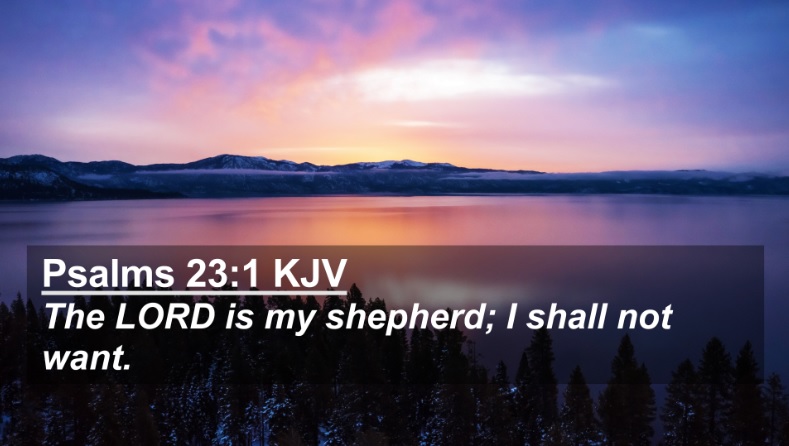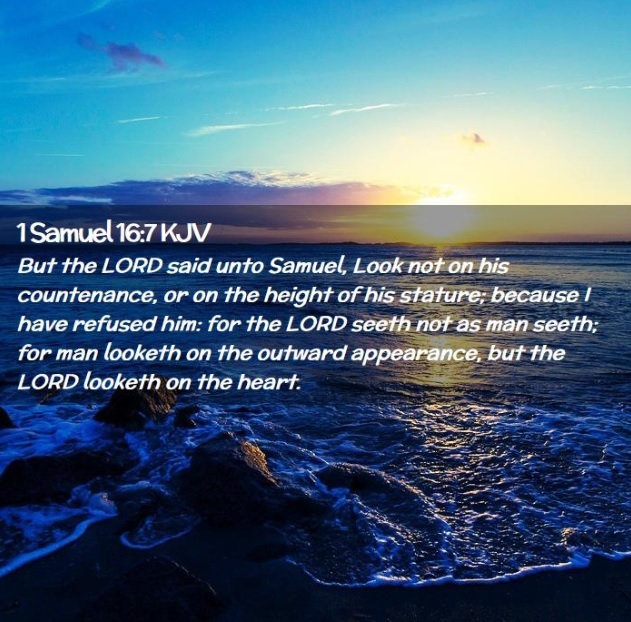“Go therefore and make disciples of all the nations…teaching them to observe all that I commanded you; and lo, I am with you always, even to the end of the age” (Matthew 28:19-20, NASB).
——————–
Contents
1) Jesus the Good Shepherd (Doy Moyer)
2) What Does God See in Your Heart? (Bryan Gibson)
——————–

-1-
Jesus the Good Shepherd
Doy Moyer
One of the great figures for the Messiah is that of the Good Shepherd. Jesus refers to Himself as the “door of the sheep,” but He is more than that. “I am the good shepherd,” He claimed (John 10:11). We will consider more in that context, but let’s back up a little.
This concept of the Lord as a Shepherd is rich in meaning, and it finds its roots in the Hebrew Scriptures. For example, God is referred to as “the Shepherd, the Stone of Israel” in Genesis 49:24. When the Lord brought Israel out of Egypt, He led them “like a flock by the hand of Moses and Aaron” (Psa 77:20). The psalmist also recognized that “He is our God, and we are the people of his pasture, and the sheep of his hand” (Psa 95:7). Kings were considered to be shepherds, and these concepts are tied with God in Psalm 80:1 where God is called the “Shepherd of Israel” who is also “enthroned upon the cherubim.” David, a messianic type, was both a shepherd and a king. Think of David’s experiences as he referred to God in his famous Psalm 23, a psalm that also connects to the exodus: “The LORD is my shepherd; I shall not want” (Psa 23:1). In the New Testament, overseers of a congregation are referred to as shepherds looking forward to the unfading crown of glory they will receive when “the Chief Shepherd appears” (1 Peter 5:1-4). The shepherd theme is rich and runs throughout Scripture.
The many passages referencing shepherds point to Jesus as the ultimate Shepherd, the “Good Shepherd.” Think of the beautiful passage in Isaiah 40 as the prophet provides God’s people this encouragement:
“Behold, the Lord GOD comes with might, and his arm rules for him;
behold, his reward is with him, and his recompense before him.
He will tend his flock like a shepherd; he will gather the lambs in his arms;
he will carry them in his bosom, and gently lead those that are with young” (Isa 40:10-11).
This perfectly describes the work that Jesus would do, and John picks up this theme in John 10. Think, then, of what Jesus says He would do as the Good Shepherd:
“The good shepherd lays down his life for the sheep” (John 10:11). Jesus is not just a hired hand who does not own the sheep; He is the owner and loves His sheep deeply and will not run from danger. He is not willing to let wolves snatch and scatter His own, but loves them to the point of giving His life so that they might live.
“I am the good shepherd. I know my own and my own know me” (John 10:14). Jesus does not guess at who belongs to Him. He knows His people (cf. 2 Tim 2:19). As Scripture says, “He knows those who take refuge in him” (Nah 1:7). Not only does He know His own people, but His people know Him. This is tied to the earlier statement: “But he who enters by the door is the shepherd of the sheep. To him the gatekeeper opens. The sheep hear his voice, and he calls his own sheep by name and leads them out” (John 10:2-3). The Lord’s sheep hear His voice and they follow Him. “And by this we know that we have come to know him, if we keep his commandments” (1 John 2:3).
“I have other sheep that are not of this fold. I must bring them also, and they will listen to my voice” (John 10:16). The mission of Jesus includes bringing in all nations, both Jew and Gentile. Doing this means “there will be one flock, one shepherd” (v. 16). The implication is that whoever listens to Jesus and follows Him will be part of the sheepfold. Jesus laid down His life, but it didn’t end there: “I lay down my life that I may take it up again” (v. 17). He died and rose again to lead people out of the wilderness of sin and into His kingdom where He gathers His lambs in His arms and carries them.
As the Good Shepherd, Jesus offers the good life, eternal life, the abundant life (John 10:10). When He is our Shepherd, we will not lack anything needed for life and godliness (2 Pet 1:3). He will have us lie down in green pastures and lead us beside quiet waters. He will restore our souls and lead us in paths of righteousness for His name’s sake. With Him by our side, though we walk in the valley of the shadow of death, we need not fear evil (cf. Heb 2:14). He is with us, and His rod and staff will comfort us (Heb 13:5-6). Goodness and mercy will follow us all our days as we serve Him.
God be praised that we have the Good Shepherd as our Rock and Salvation! Jesus, the Chief Shepherd of our souls, stands ready and willing to grant us the unfading crown of glory.
— Via Bulletin Articles from the Vestavia church of Christ, March 24, 2024
——————–

-2-
What Does God See in Your Heart?
Bryan Gibson
“God left him alone only to test him, that He might know all that was in his heart” (2 Chronicles 32:31, NAS). King Hezekiah of Judah is the subject of this passage, but forget him for a minute. What does God see in YOUR heart? These five contrasting hearts should help us answer that question (these examples come from kings of Israel or Judah).
CONTRAST #1: PREPARED OR UNPREPARED?
Does He see what He saw in Rehoboam’s heart? “He did evil, because he did not prepare his heart (“did not set his heart”—ESV, NASV) to seek the LORD” (2 Chronicles 12:14).
Or, does He see what He saw in Jehoshaphat’s heart? “Good things are found in you, in that you have removed the wooden images from the land, and have prepared your heart to seek God” (2 Chronicles 19:3).
CONTRAST #2: MY WAYS OR HIS WAYS?
Does He see what He saw in Jeroboam’s heart? “So he made offerings…in the month which he had devised in his own heart” (1 Kings 12:33).
Or, does He see what He saw in Jehoshaphat’s heart? “And his heart took delight in the ways of the LORD” (2 Chronicles 17:6).
CONTRAST #3: HARD OR TENDER?
Does He see what He saw in Zedekiah’s heart? “He stiffened his neck and hardened his heart against turning to the LORD God of Israel” (2 Chronicles 36:13).
Or, does He see what He saw in Josiah’s heart? “Because your heart was tender, and you humbled yourself before God when you heard His words against this place…you tore your clothes and wept before Me, I also have heard you” (2 Chronicles 34:27).
CONTRAST #4: ALL OR HOLDING BACK?
Does He see what He saw in Jehu’s heart? “But Jehu took no heed to walk in the law of the LORD God of Israel with all his heart” (2 Kings 10:31).
Or, does He see what He saw in Josiah’s heart? “Now before him there was no king like him, who turned to the LORD with all his heart, with all his soul, and with all his might, according to all the law of Moses…” (2 Kings 23:25).
CONTRAST #5: LIFTED UP OR LOWLY?
Does He see what He saw in Uzziah’s heart? “But when he was strong his heart was lifted up, to his destruction…” (2 Chronicles 26:16).
Or, does He see what He saw in Hezekiah’s heart? “Hezekiah humbled himself for the pride of his heart…” (2 Chron. 32:26). And in Manasseh’s heart? “Now when he was in affliction, he implored the LORD his God, and humbled himself greatly…”
CONCLUSION
“I am He who searches the minds and hearts” (Revelation 2:23). Let’s make sure God finds in us a humble heart; a heart that delights only in His ways; a heart completely set on following His ways; a heart devoted to following ALL His ways; and a heart which is ever tender, toward both His commandments and His correction.
— Via Plain Words from God’s Word, July 4, 2024
——————–
The Steps That Lead to Eternal Salvation
1) Hear the gospel — for that is how faith comes (Rom. 10:17; John 20:30-31).
2) Believe in the deity of Jesus Christ, the Son of God (John 8:24; John 3:18).
3) Repent of sins. For every accountable person has sinned (Romans 3:23; Romans 3:10), which causes one to be spiritually dead (Ephesians 2:1) and separated from God (Isaiah 59:1-2; Romans 6:23). Therefore, repentance of sin is necessary (Luke 13:5; Acts 17:30). For whether the sin seems great or small, there will still be the same penalty for either (Matt. 12:36-37; 2 Cor. 5:10) — and even for a lie (Rev. 21:8).
4) Confess faith in Christ (Rom. 10:9-10; Acts 8:36-38).
5) Be baptized in water for the remission of sins (Mark 16:16; Acts 2:38; 22:16; 1 Pet. 3:21). This is the final step that puts one into Christ (Gal. 3:26-27). For from that baptism, one is then raised as a new creature (2 Cor. 5:17), having all sins forgiven and beginning a new life as a Christian (Rom. 6:3-4). For the one being baptized does so “through faith in the working of God” (Col. 2:12). In other words, believing that God will keep His word and forgive after one submits to these necessary steps. And now as a Christian, we then need to…
6) Continue in the faith by living for the Lord; for, if not, salvation can be lost (Matt. 24:13; Heb. 10:36-39; Rev. 2:10; 2 Pet. 2:20-22).
——————–
Tebeau Street
CHURCH OF CHRIST
1402 Tebeau Street, Waycross, GA 31501
Sunday: 9 a.m. Bible Classes and 10 a.m. Worship Service. Congregational Song Service: 5 p.m. for every first Sunday of the month.
Wednesday: 7 p.m. Bible Classes
evangelist/editor: Tom Edwards (912) 281-9917
Tom@ThomasTEdwards.com
https://thomastedwards.com/go/all.htm (This is a link to the older version of the Gospel Observer website, but with bulletins going back to March 4, 1990.)